Shenzhen, China - April 23, 2025 - Hosted by Tuya Smart (NYSE: TUYA, HKEX: 2391), a leading global AI cloud platform service provider, the second half of the main forum at the 2025 TUYA Global Developer Summit officially commenced in Shenzhen. Themed “AI Reshapes the Physical World,” the event focused on translating AI technologies into scalable spatial intelligence capabilities, empowering developers to bridge the gap between AI and the physical world and usher in a new era of intelligent transformation.
The summit opened with a compelling keynote by Sense Chi, Director of AI Smart Solutions Delivery at Tuya Smart, who addressed the theme "AI Reshapes the Physical World".
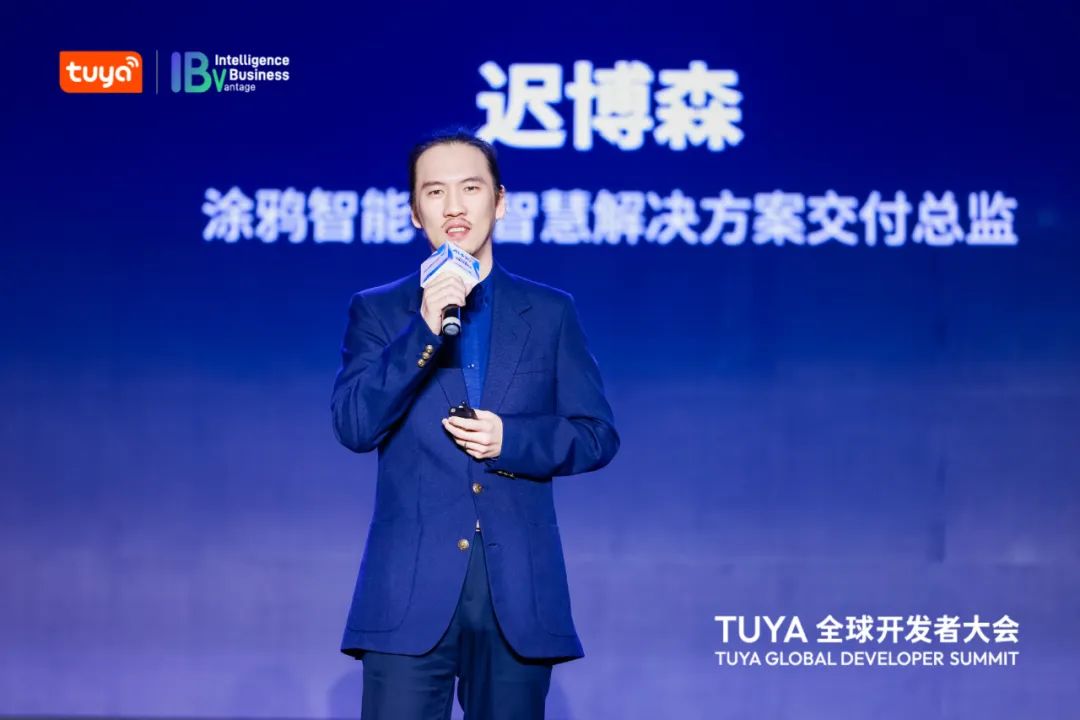
Chi noted, “The global smart space market continues to expand year by year. However, we are also witnessing increasingly serious challenges such as energy waste and economic inefficiencies across industrial, public, office, and residential spaces. In response to these issues, Tuya has launched its breakthrough Spatial LLM technology, which redefines the operating system of spatial intelligence. Through environmental perception, dynamic decision-making, and multimodal interaction, this technology reconfigures how smart homes, buildings, and cities operate. As spaces gain the ability to ‘think,’ humanity may need to rethink its symbiotic relationship with intelligent environments—leveraging technology to foster progress and promote a civilization guided by goodness.”
China Overseas Development Technology: AI Empowering Sustainable Smart Living
As a wholly-owned subsidiary of China Overseas Property, China Overseas Development Technology focuses on next-generation information technology within the new industrial landscape. The company is dedicated to four core solution areas: intelligent housing, digital transformation, dual-carbon energy efficiency, and AI+BIM-powered tools for real estate empowerment.
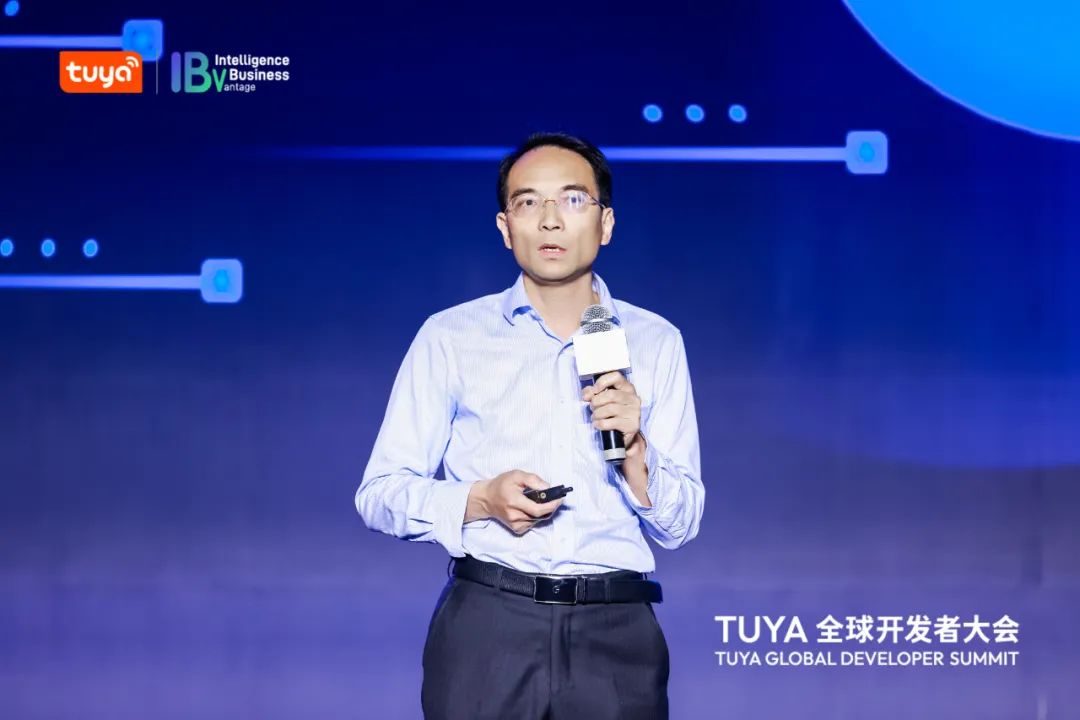
Xiangxin Yu, Deputy General Manager of China Overseas Development Technology, remarked, “Smart homes will continue to evolve much like smart cars. As AI and IoT technologies advance, we are seeing greater possibilities for seamless interaction, intelligent services, and high-level integration. To accelerate this transformation, we have established an in-depth collaboration with Tuya to co-develop the HAIZHICHUAN Spatial Intelligent Network Platform. This platform redefines smart living standards through five core capabilities: spatial awareness, enhanced intelligence, openness, integration, and operational insights. Additionally, we launched the Xiaohai Smart Butler, a key vehicle for implementing AI in real-world applications. It delivers intelligent, full-scenario services to users, enabling the leap from smart spaces to truly smart living.”
Towngas Lifestyle: Driving Service Innovation and Enhancement with AIoT
Towngas Lifestyle is a wholly-owned subsidiary of The Hong Kong and China Gas Company (Towngas), founded in July 2015. As the group's unified platform company, it coordinates the extended business operations of over 130 gas subsidiaries. Through a centralized supply chain system and proprietary digital platforms, it delivers one-stop lifestyle service solutions to more than 43 million households across Hong Kong and mainland China. This model has significantly fueled the expansion of Towngas’s extended services, becoming a new growth engine for the group.
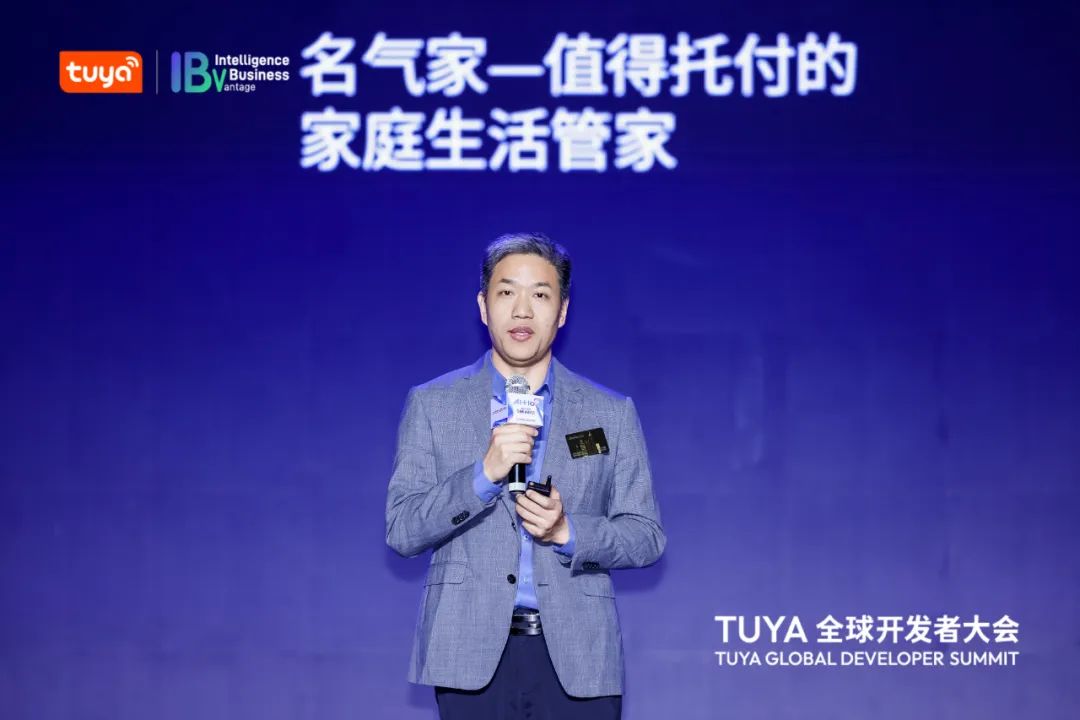
Jianfeng Liu, Senior Vice President of Towngas Lifestyle, shared: “AIoT technologies do more than connect devices and enable real-time monitoring of gas appliances and environmental conditions to enhance safety and reliability in gas usage. With AI, we can further transcend the limitations of traditional service models by predicting safety risks, forecasting service needs, improving operational efficiency, and enhancing user experiences. This redefines the boundaries of gas services. Looking ahead, Towngas Lifestyle is committed to working with global ecosystem partners like Tuya to explore new AIoT scenarios, drive technological upgrades, and foster service innovation, fueling the next wave of growth in the gas industry.”
Solid Insight: Leapfrogging Africa's Real Estate: Unlocking the Power of Smart Buildings
Leveraging a decade of expertise in sustainability consulting across 140+ green buildings, Solid Insight is strategically evolving to address the new demands for net zero carbon performance, ensuring they help their clients meet the demands of the ever-changing real world.
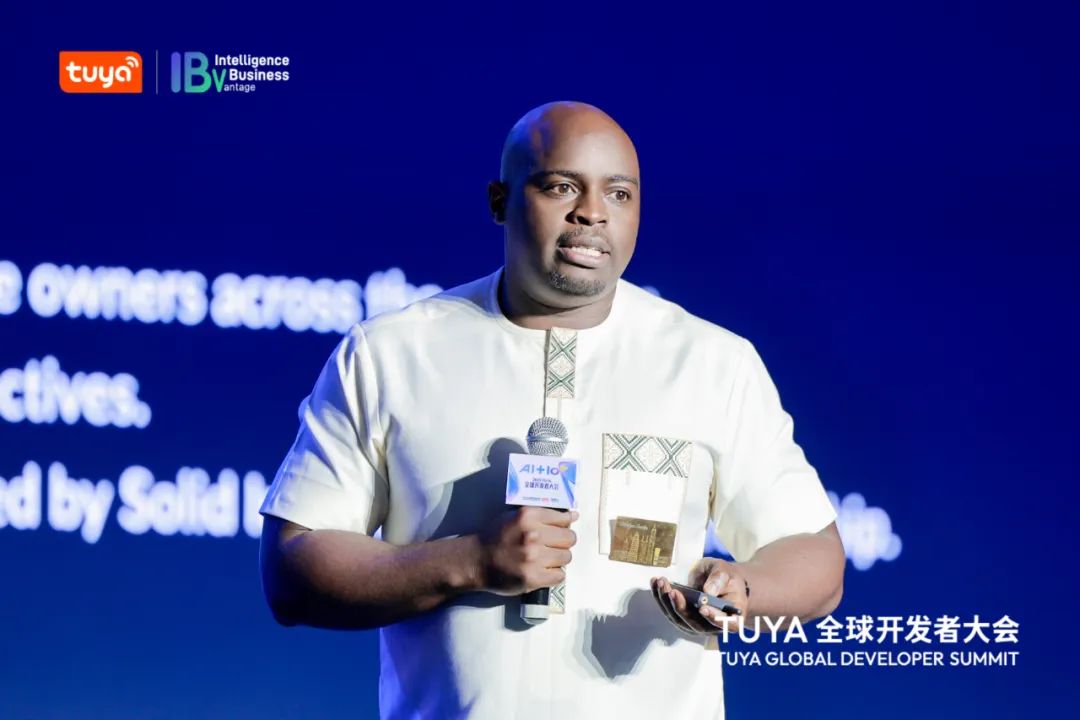
Chilufya Lombe, CEO of Solid Insight, highlighted the unique opportunities for Africa in the realm of smart buildings, stating: “AIoT enables the continent to leapfrog traditional building management systems, achieving real-time energy monitoring, automated operations, and optimized building performance—at lower costs and with greater efficiency. Solid Insight brings deep roots in sustainability built over the last 15 years, and this next step in our journey closes the loop by translating strategic intent into measurable operational performance. Through our collaboration with Tuya, we’re combining cutting-edge AIoT technologies with localized expertise to deliver scalable smart building solutions tailored to the African real estate sector. This partnership not only accelerates progress toward net-zero carbon goals but also drives long-term sustainable development across the region."
Silk Road Samarkand: Implementing a large-scale project aimed at reducing energy consumption
Silk Road Samarkand is a one-of-a-kind multifunctional destination that seamlessly integrates cultural, medical, and business tourism. Designed to transcend geographical boundaries, the complex aspires to become a modern landmark destination that shines across Central Asia.
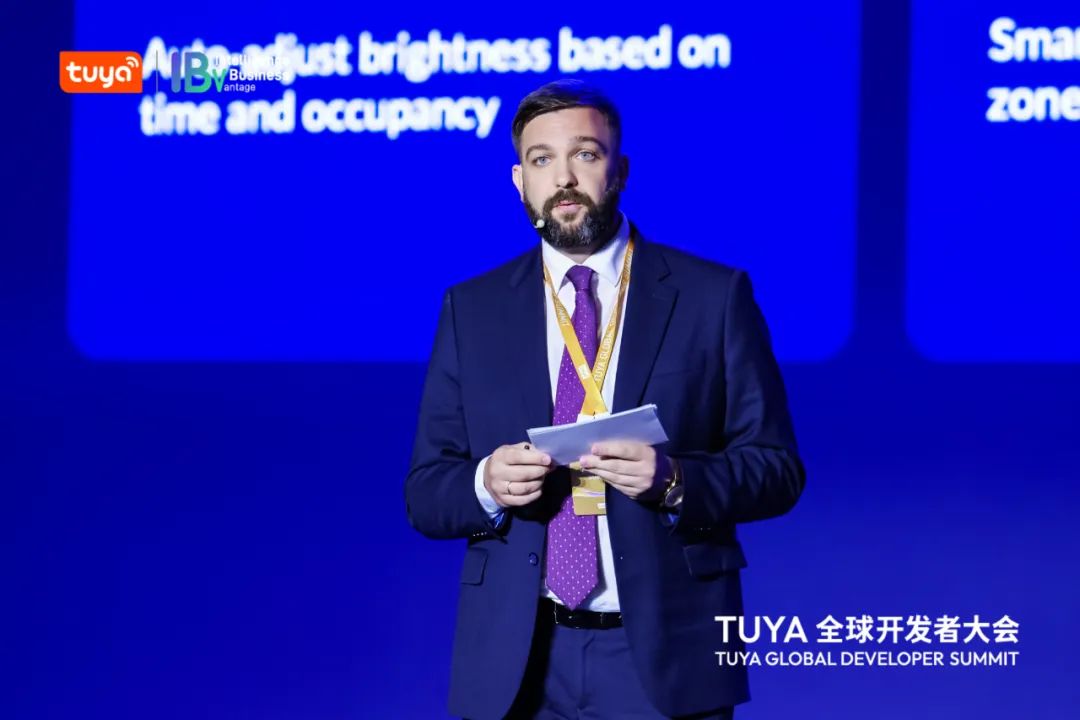
Sergey Voloshchenko, Director of Digital Transformation at Silk Road Samarkand shared, “Our Headquarters building Transformation project is built around an integrated platform powered by Tuya. By combining mobile-cloud collaborative management with Zigbee-based local management, we have achieved rapid device deployment, personalized scene customization, and remote voice control. The result is a remarkable energy-saving performance—reducing consumption by up to 30% during peak summer hours and saving over 390 megawatt-hours per month. Beyond lowering operational costs, the solution also enhances employee comfort and boosts work efficiency. This demonstrates how AIoT technologies can not only deliver precise energy management but also drive sustainable, intelligent growth.”
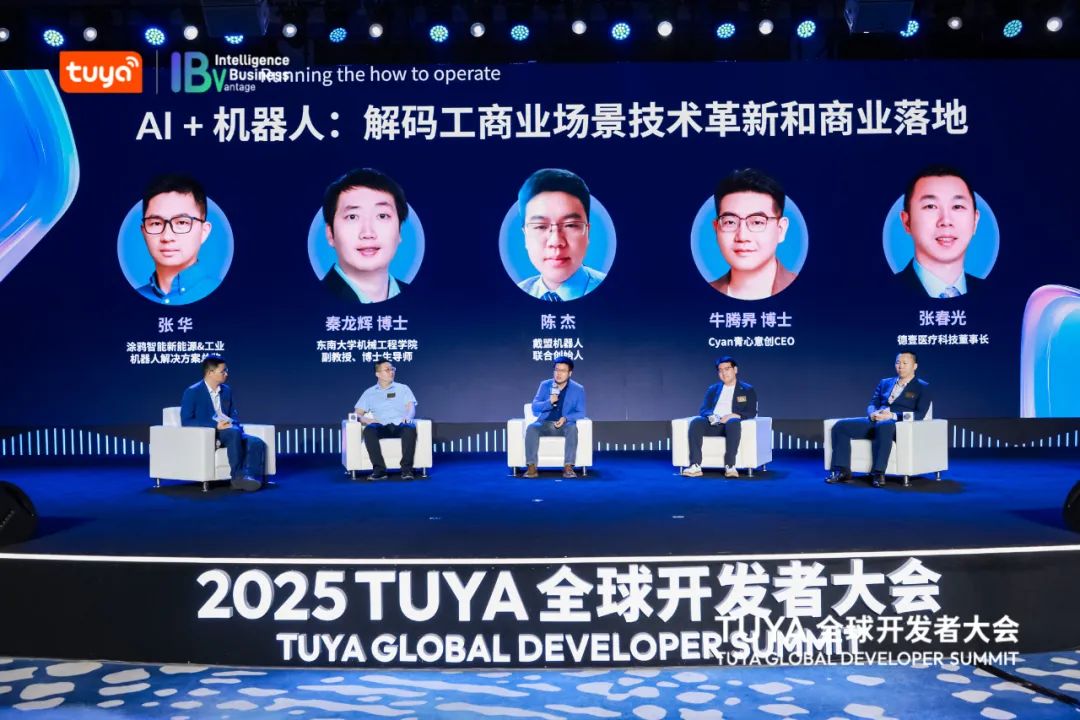
During the summit, Tuya also hosted a roundtable discussion titled "AI-Driven Robotics: Decoding Technological Innovation and Commercial Deployment in Industrial and Commercial Scenarios". The session brought together leading experts and scholars from industry, academia, and research institutions to engage in in-depth discussions on critical topics such as breakthroughs in AI robotics and emerging business models. The dialogue broadened the technical perspectives of global developers and is expected to significantly accelerate the growth of the AI robotics industry.
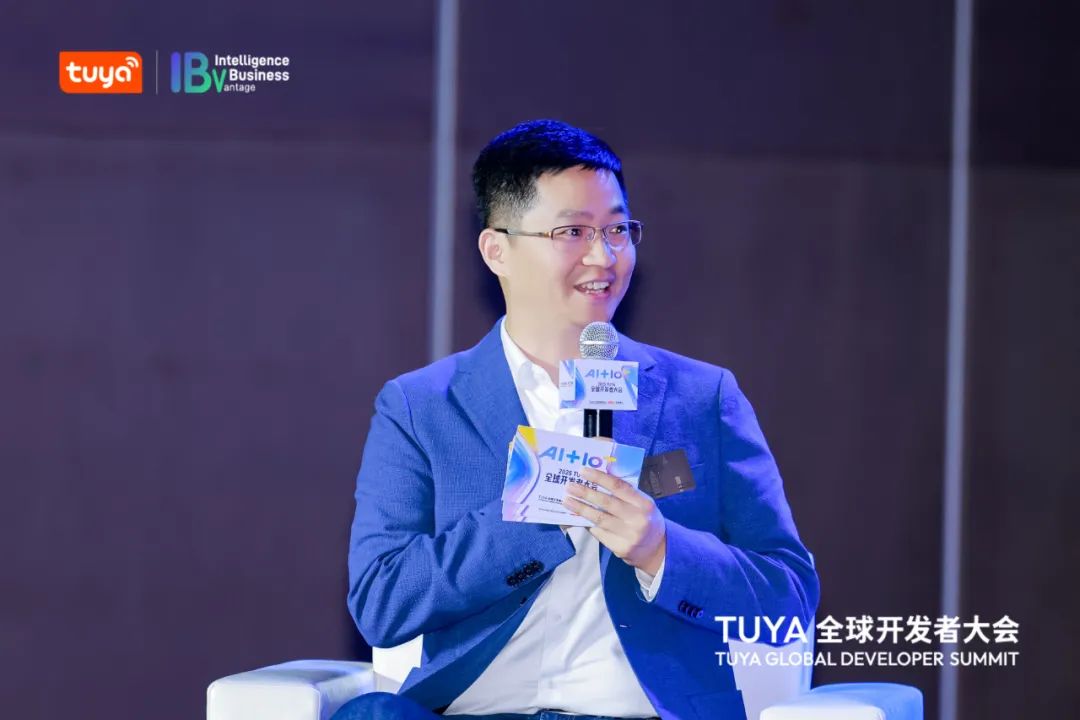
Harvey Zhang, Director of New Energy & Industrial Robotics Solutions at Tuya Smart, emphasized how AI is transforming industrial paradigms, “The rapid advancement of AI is fundamentally redefining industrial logic, particularly in the realm of robotics applications. AI is increasingly integrated into key stages of industrial operations, from production and assembly to quality inspection, predictive maintenance, and intelligent warehousing. Powered by Tuya’s AIoT development platform, companies specializing in embodied intelligence and automation solutions can swiftly integrate AI and IoT capabilities into industrial robots. This significantly enhances collaborative operations in manufacturing environments, driving both cost reduction and operational efficiency. This, in essence, is the core value of the AI revolution.”
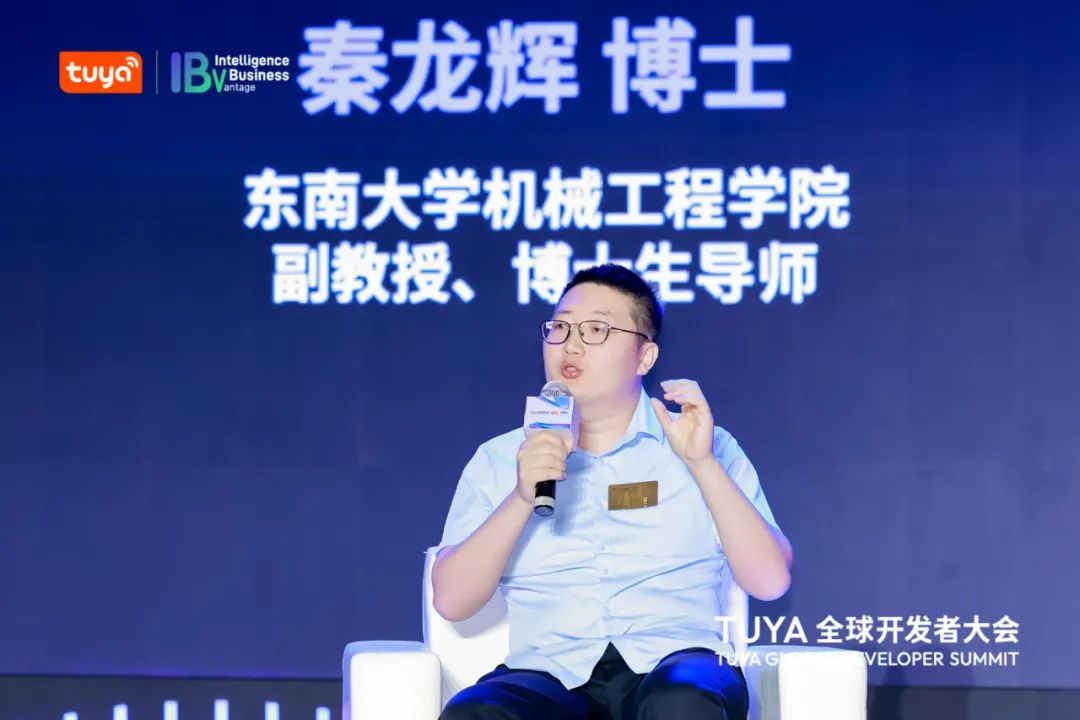
Dr. Longhui Qin, Associate Professor at the School of Mechanical Engineering, Southeast University, emphasized the transitional moment that embodied intelligence is undergoing, “Embodied intelligence is at a pivotal stage, moving from theoretical exploration to practical application. Its essence lies in the deep integration of AI with physical systems, enabling robots to perceive, make decisions, and interact dynamically with their environment. The manifestations of embodied intelligence are diverse, ranging from industrial robotic arms and service robots to bionic prosthetics. Ultimately, its form is dictated by real-world demands, representing a fundamental redefinition of the human-machine collaboration paradigm.”
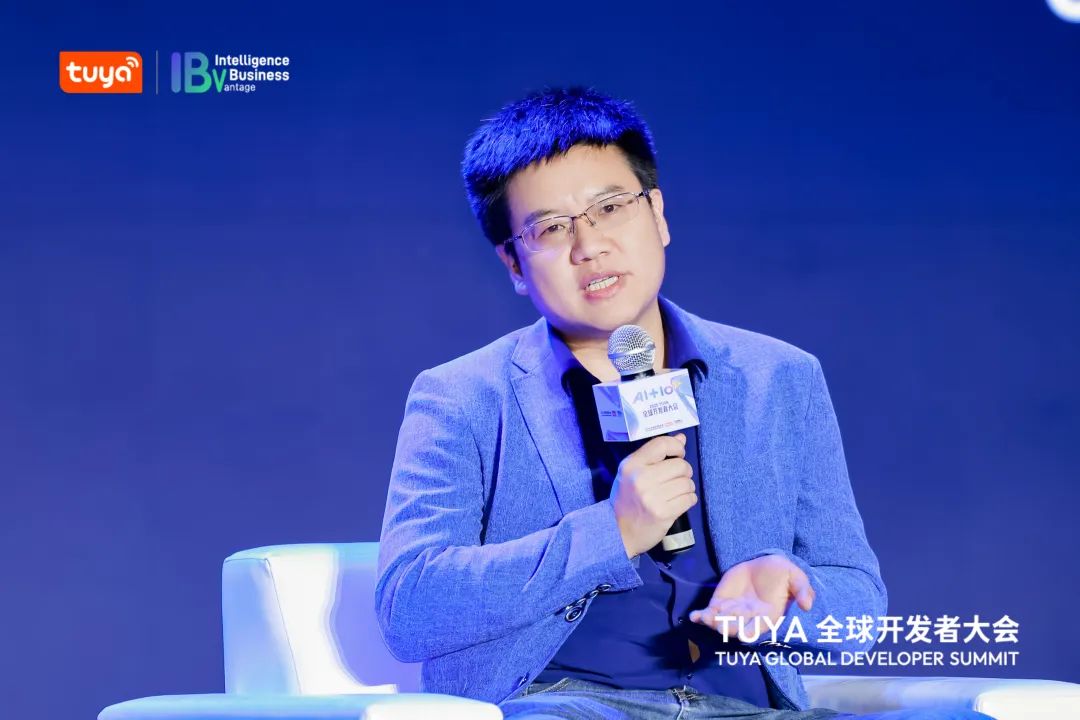
Jie Chen, Co-Founder of Daimon Robotics Technology, underscored the critical role of tactile perception in the industrialization of robotics, “The sense of touch is the core interface of embodied intelligence, enabling machines to develop ‘muscle memory’ for interacting with the physical world. At Daimon, we focus on enhancing the fine motor control of humanoid robot upper limbs. We’ve developed the world’s first multi-dimensional, high-resolution, high-frequency visual-tactile sensor, a five-finger dexterous hand with multidimensional tactile feedback, and the multimodal VTLA embodied large model with tactile perception. Our work in visual-tactile technologies will empower embodied intelligence to take root across smart logistics, intelligent manufacturing, and home service applications, pushing the boundaries of what robots can achieve.”
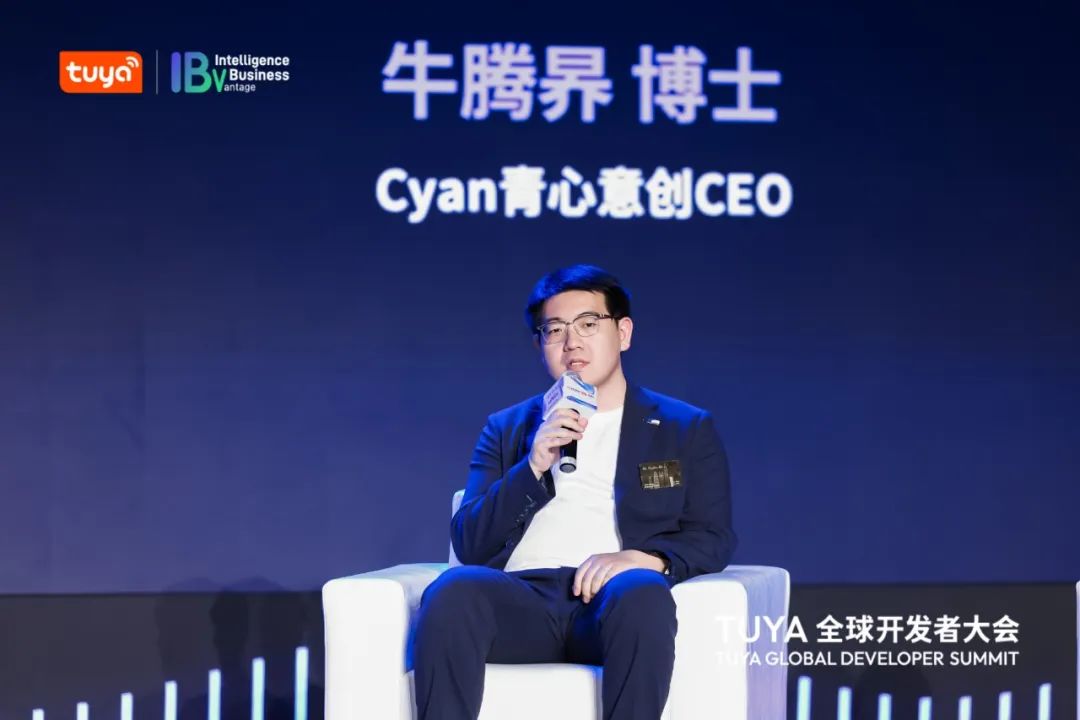
Dr. Tenghao Niu, CEO of Cyan, highlighted the critical shift AI robotics must make to achieve true commercialization, “To unlock the full potential of AI robots, we must move beyond their identity as mere tools and build genuine emotional connections with users. One of the greatest challenges we face is eliminating the mechanical rigidity and achieving full anthropomorphism. In response, we developed Orca I, our first proprietary humanoid robot, which marks a significant technological leap across body design, motion control, natural language interaction, and dual-arm coordination. Orca I is not just a machine, but is a warm, intelligent companion.”
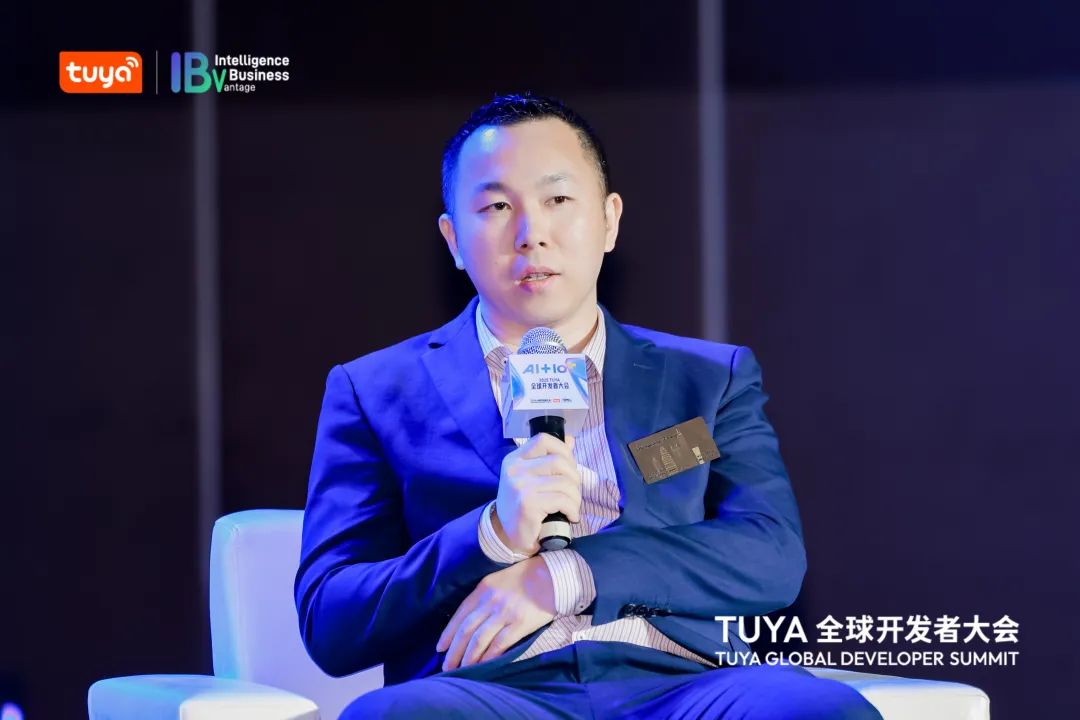
Chunguang Zhang, Chairman of Deyi Medical Technology, addressed the urgent needs within the global rehabilitation and wellness industries, “The sector is increasingly strained by a shortage of professional therapists, long training timelines, high labor costs, workforce instability, and inconsistent service quality. In this context, AI-powered therapy robots offer a transformative solution. They not only take over repetitive physical tasks but also accumulate data to optimize treatment plans and reduce therapist injuries—outcomes that are difficult to achieve through traditional manual therapy. At Deyi Robotics, we’ve launched the Deep Therapy Large Model Open Source Project, aiming to build intelligent therapeutic systems driven by ‘perception–decision–execution–evolution.’ Our goal is to bring AI-empowered rehabilitation services into millions of households.”
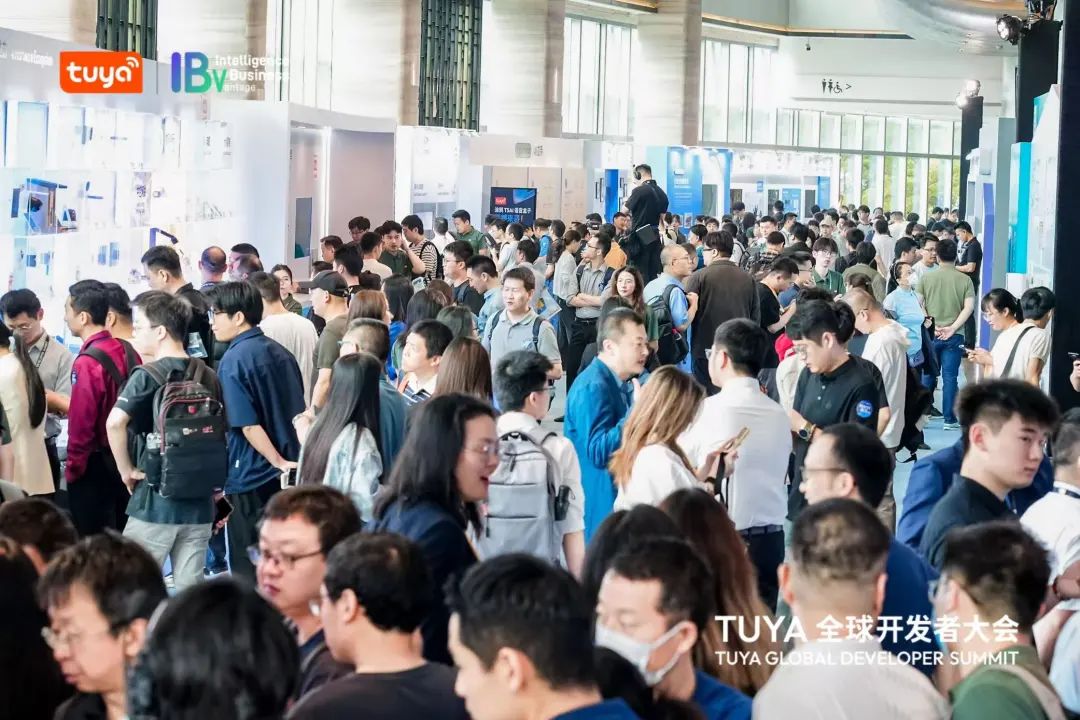
The second half of the summit’s main forum brought together industry leaders to explore the convergence of AI innovation and real-world applications. Covering themes from intelligent living and low-carbon energy to robotics, the forum served as a dynamic stage for global developers to engage in thought-provoking discussions and cutting-edge technology exchanges. Looking ahead, Tuya Smart remains committed to working hand-in-hand with global developers to push the boundaries of technology, deepen scenario-based applications, and accelerate AI’s transformation of the physical world—paving the way for a future of intelligent, interconnected living.





